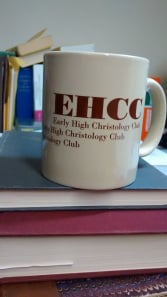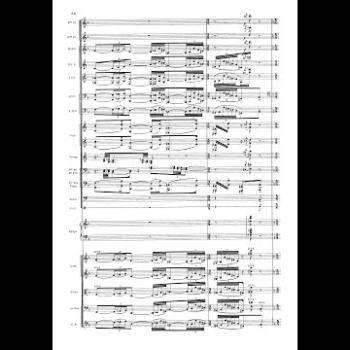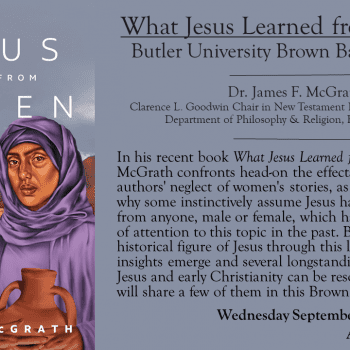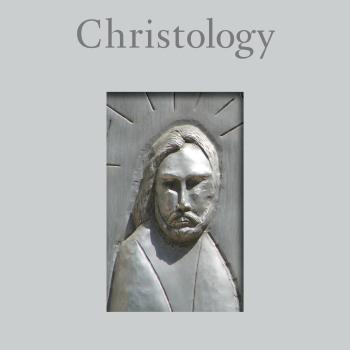I’m reading Bart Ehrman’s latest book, How Jesus Became God: The Exaltation of a Jewish Preacher from Galilee, and will begin blogging my thoughts about it soon. Before doing so, let me get out of the way an abundance of blog posts related to the book or to the topic of Christology that is its focus, which have appeared in the blogosphere since my last round-up.
Ehrman shared a video of a lecture he gave a decade ago, on “Christ come in the flesh”:
Ken Schenck’s multi-post blog review drew to a close, including chapter 7 about Jesus as God on earth, chapter 9 on the Trinitarian creeds, and the epilogue.
Larry Hurtado has blogged several times on this topic. See for instance his post on Paul’s messianic Jewish Christology, and his discussion of Christopher Barina Kaiser’s book on visions of the Lord. He also shared posts about the divine name as it pertains to New Testament Christology, including its rendering in the Septuagint. See also his article on textual ambiguity in Acts.
Crispin Fletcher-Louis shared a paper outlining his forthcoming book about Jesus’ monotheism.
Matthew Malcolm shared thoughts on Paul’s interpretation of Scripture as it relates to monotheism and Christology.
Chris Keith mentioned, and Michael Kruger shared the table of contents from, the forthcoming volume in honor of Larry Hurtado’s work, including on monotheism and Christology.
Johnny Walker reviewed Chris Tilling’s book, Paul’s Divine Christology.
Dale Tuggy blogged about interaction between Buzzard and Bowman on the Shema, and discussed the interpretation of Philippians 2:6-11 (also mentioned by Dustin Smith). Someone else drew my attention to a JETS article and a PhD thesis on the interpretation of Philippians 2:6-11, which are available online.
Jaco’s Blog responded to me on the understanding of “I am” as in some sense a divine self-designation, which represents in the Fourth Gospel the divine name that God has given to Jesus. I plan to return to that conversation, as well as the more recent one about pre-existence in Philippians 2:6-11, sometime soon. But sharing these links was long overdue.
Of related interest, don’t miss the discussion of the criteria of authenticity and of potentially historical material in the Gospel of John on James Crossley’s blog as well as elsewhere. Also, Ken Schenck asked whether Jesus was an ISFP.
Phillip Long discussed the application of historical critical skepticism to the Gospels. In repeating the claims that conservative Evangelicals have made about its presuppositions, Long seems to me to enter into the same problematic territory that antievolutionists do when they complain about science presupposing “philosophical naturalism.” Neither history nor science requires that one subscribe to such a philosophy, but it does require that you subscribe to a particular methodology. And those methods have shown themselves to work well for answering the kinds of questions they are designed to answer.
See also David Capes’ post on the Early High Christology Club. I didn’t know they have their own mugs! He also blogged about Chris Tilling’s book and shared a link to an article he wrote on extrabiblical evidence for the historical Jesus.













